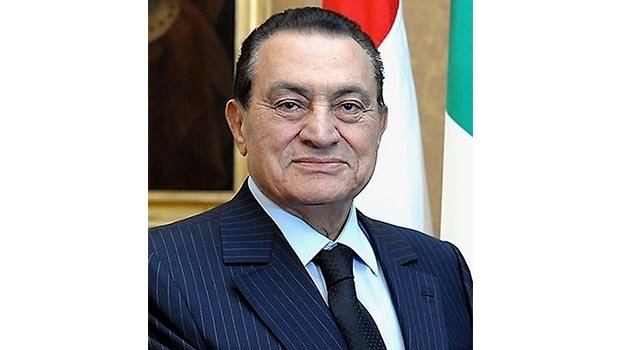Former Egyptian President Hosni Mubarak dies aged 91

Hosni Mubarak, Egypt’s autocratic former president who ruled with an iron fist for three decades before being toppled during the Arab spring protests in 2011, has died aged 91, reports The Guardian.
Mubarak became a symbol of thuggish and brutal authority after taking power in 1981 following the assassination of Anwar Sadat. His reign was marked by the emergence of a paranoid and cruel police state supported by a network of sprawling military businesses and corrupt crony businessmen. Many Egyptians see echoes of Mubarak’s style of leadership in their current leader, the former general Abdel Fatah al-Sisi. The former president’s family said he was recently taken to hospital and had entered intensive care following an operation to remove a stomach tumour.
US administrations showered him with billions of dollars, but unemployment and poverty continued to grow, and in 2011 he was toppled in the Arab spring uprisings that began in Tunisia.
Mass protests overtook Cairo’s central Tahrir Square and other major Egyptian cities to demand an end to Mubarak’s time in power. His cronyism, his corrupt leadership and his security forces’ cruel treatment of the Egyptian populace galvanised a generation to demand change. Protesters called for “bread, freedom and social justice” and an end to military rule.
Mubarak’s response to the protestors was as brutal as his reign, overseeing a violent response that resulted in the deaths of 239 people. After 18 days of protests, Mubarak’s 29-year reign was ended in a 30-second video message from then-vice president Omar Suleiman. “My fellow citizens, in the difficult circumstances our country is experiencing, President Muhammad Hosni Mubarak has decided to give up the office of the president of the republic,” he said. Protests rapidly became celebrations, as demonstrators chanted “we have brought down the regime”.
“Hosni Mubarak was the first Egyptian president since Nasser to leave office standing. He lived long enough to go from experiencing disgrace to witnessing an even more brutal dictator replace him that has left many in Egypt missing his presidency despite how reviled he once was,” said Timothy E Kaldas of the Tahrir Institute for Middle East Policy.
Mubarak was the first of the leaders toppled in the wave of Arab uprisings to face trial. In scenes that captivated Egyptians, he appeared in a courtroom cage on a range of charges. In 2012 he was jailed for life for conspiring to murder protesters and sent to Cairo’s Tora prison, though occasionally moved to the Maadi military hospital nearby amid claims of failing health.
In 2015, he was sentenced in a separate case to three years in prison, accused along with his two sons, Gamal and Alaa, of embezzling public funds for the renovation of presidential palaces, part of a long and protracted set of corruption charges, as well as attempts to reclaim the Mubarak’s money held in Switzerland. His sons were acquitted this month over a separate set of charges concerning illicit trading.
In 2017, Mubarak was acquitted by Egypt’s highest appeals court of conspiring to kill protesters. The acquittal saw him walk free from the Maadi military hospital, where small crowds of supporters routinely gathered outside his bedroom window in support.
Mubarak’s reign was seen by critics and supporters alike as a prototype of Sisi, who seized power in a military coup after a brief rule by Egypt’s only democratically elected president, Mohamed Morsi. Morsi died in court last June following allegations of prolonged medical neglect in prison. Many of those who rose to prominence in the uprising against Mubarak have since been imprisoned or have left the country, amid a crackdown on civil society and free speech under Sisi’s rule.
Asked to comment on Mubarak’s release from prison in 2017, the award-winning human rights lawyer Mahienour El Massry, who was rearrested in a crackdown after fresh protests last year, said: “In the eyes of those who believe in the revolution he will always be a criminal killer and the godfather of corruption. This might be another round that we have lost, but we will keep on fighting to change the inhuman regime that releases criminals and imprisons innocent people.”



